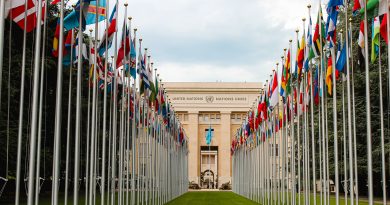Focus on Absolute Monarchs: Saudi Arabia
By Mark McGuire
Staff Writer
The new head of the Saudi Anti-Corruption Committee, Crown Prince Mohammad bin Salman (widely known as MBS), arrested over 200 Saudi officials in an effort to crack down on illicit dealings, according to Time. The arrests also allow Saudi Arabia’s heir to the throne to consolidate power as his ailing father, King Salman, prepares his son to take over as the head of the state.
MBS’s rise to prominence is unique, partly due to the way in which he rose to power. This is because King Salman dismissed two prior crown princes, including Mohammad bin Nayef, seen as a key ally of the United States who led Saudi Arabia’s anti-terror campaign, in order to clear a path for his son.
In Saudi Arabia, which has a tradition of governing by consensus, the king’s dismissal of two potential successors was seen as highly unusual and a break of tradition. This unorthodox ascension laid the groundwork for the present developments, as MBS, having been promoted to the country’s number two position, is using his newfound power to subdue potential rivals and silence dissent.
As The Economist reports, these rivals are themselves quite powerful, and include billionaire businessman Prince Alwaleed bin Talal and potential future king Prince Mutaib bin Abdullah. Both influential individuals, Prince Alwaleed and Prince Mutaib, were detained in the latest round of Crown Prince Mohammad’s anti-corruption purges.
The ambitious crown prince’s efforts go far beyond simply trying to gain more national clout. The young leader has also expressed a desire to remake Saudi Arabia’s social and economic landscape through an initiative that he announced last year called Saudi Vision 2030, according to Politico.
The crown prince’s reforms had already started to take shape under King Salman. MBS was influential in the announcement that women will be allowed to drive starting in June 2018, the stripping of powers from the religious police, and the implementing of economic reforms, all of which are designed to make the country stronger and more prosperous.
MBS also made waves for his statements on Saudi Arabia’s religiosity. Saudi Arabia, under his leadership, would return to a form of “moderate Islam” and abandon the fundamentalism that he believes has caused regional upheaval, and which he refers to as “not normal,” according to The Guardian.
Further complicating the situation are the crown prince’s views on foreign policy, which focus on aggressively combating Iranian efforts to shift the regional balance of power. Though most Saudi officials agree that Iran is Saudi Arabia’s chief rival and number one security threat, as Foreign Policy reports, a number of officials also believe the crown prince to be too impulsive in making crucial foreign policy decisions.
This has led to questions regarding the crown prince’s handling of the kingdom’s Yemen intervention, the Qatari diplomatic crisis, and the Lebanese political crisis.
MBS, who is 32, would make the first prospective king not to be born of the nation’s founder Ibn Saud, the most pivotal figure in Saudi Arabia’s recent history. As The Atlantic notes, the prince’s success depends on his ability to simultaneously consolidate power, stymie dissent, reshape the country socially and economically, and pursue a high-risk foreign policy against Iran.
If effective, the leader will be hailed as a visionary and a hero. If not, the future of Saudi Arabia and the stability of the region may fall victim to the prince’s alleged impulsive and overreaching tendencies. Either way, only time will reveal the ultimate outcome of the crown prince’s plans, but one thing is certain – change is in Saudi Arabia’s future.


